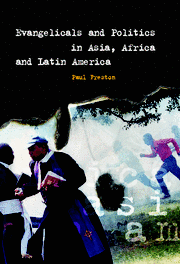Summary
A relatively developed country in the early twentieth century, Argentina started to decline economically, alternating between military and populist governments. For different reasons, the populist governments of Juan Perón and the brutal military regime of 1976–83 have marked not only modern Argentine politics but the trajectory of Protestantism as well.
Protestantism was for long associated with immigrant minorities. This was true even of pentecostalism. Although it started among Italians, it was for decades ‘more readily accepted in mainly Indian communities or amongst central or northern European immigrants. The greatest resistance was met where there were most first-generation descendants of Italian or Spanish immigrants … [who did not want to] risk foregoing that which made them sense that this new Catholic country was indeed their own’ (Saracco 1989: 69–70). Slow growth has to do with this identification with immigrants. According to D'Epinay (1975), it also has to do with Peronism's capacity to court the new urban masses with the quasi-religious cult of Evita. Only following the failure of Peronist populism in the 1950s did pentecostalism gain ground among the urban poor, and it reached new heights after redemocratisation in the early 1980s had left the Catholic Church shaken by its association with militarism (Saracco 1989: 140). By the late 1980s, Protestantism had achieved unprecedented projection, thanks partly to high-profile neo-pentecostals such as Omar Cabrera, Carlos Annacondia and Héctor Giménez.
- Type
- Chapter
- Information
- Evangelicals and Politics in Asia, Africa and Latin America , pp. 197 - 199Publisher: Cambridge University PressPrint publication year: 2001



